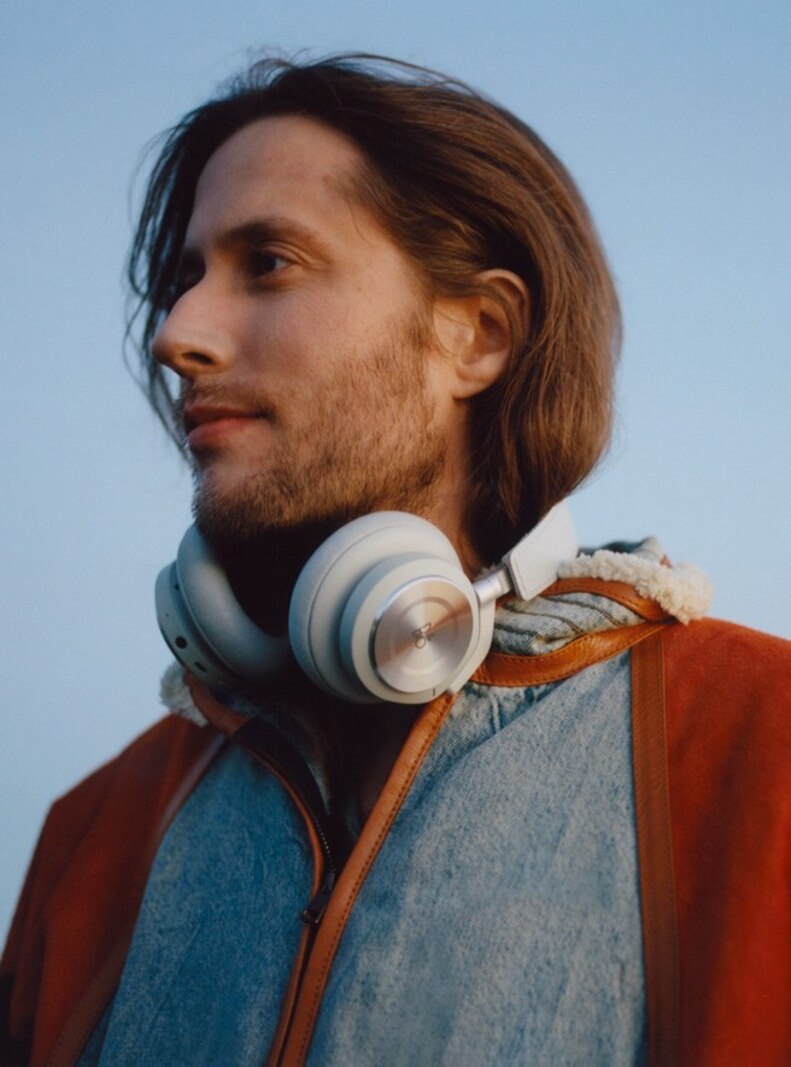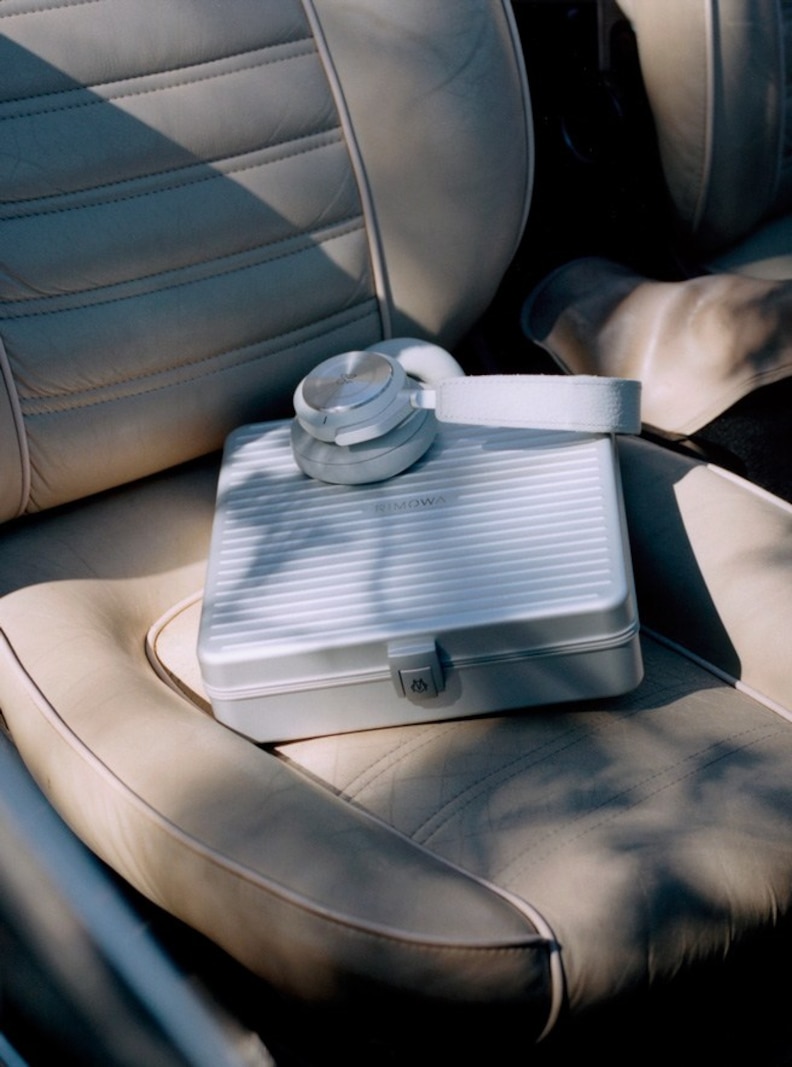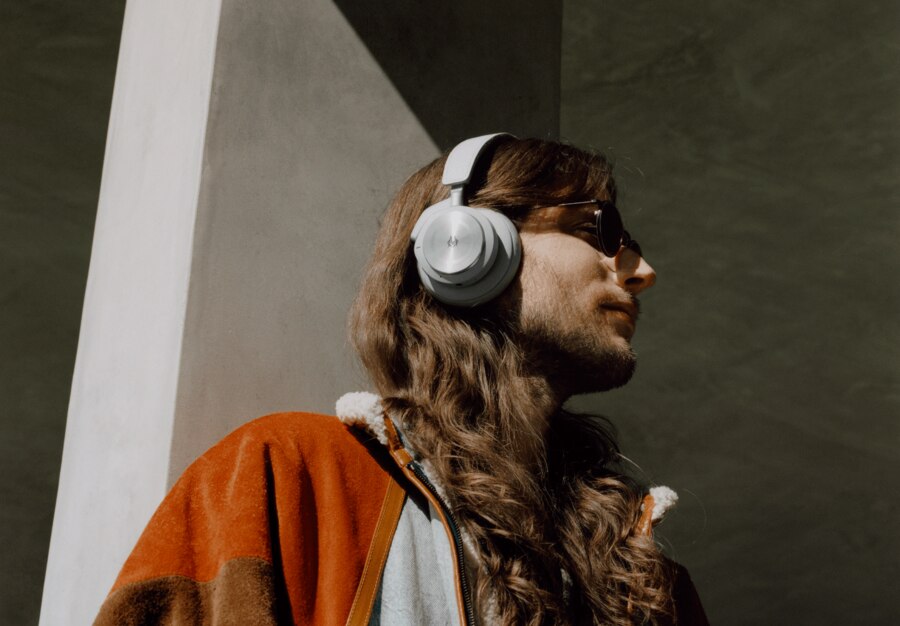March 27, 2019
Q+A: Ludwig Göransson for RIMOWA x Bang & Olufsen
This interview has been produced as part of the RIMOWA’s collaboration with Bang & Olufsen.
As part of the RIMOWA x Bang & Olufsen collaboration, LA-based Grammy-winning musician and music producer, Ludwig Göransson, shared how mistakes, cultural immersion through travel, and the chaos of everyday organic sounds, all work to change the way he hears and sees the world, keeps him learning, and ultimately informs every note of his work.
You are originally from Sweden, but you’re based in LA now. Why LA? Is there anything here specifically that inspires your work on a day to day being based here?
I live on the top of a hill. It’s called Griffith Park. Every day I wake up looking out over the mountains, and I love it. I love LA partly because it feels like there are so many parts of the world in this city. You can travel around in your car, and within an hour you can find yourself in five different countries, five different cities. The diversity is inspiring. So many different languages, foods, varied cultures – that energy – is something you are always surrounded by.
How do your travels and exposure to different cultures affect your own sound and musical development?
Different places around the world can inspire different musical styles that exist inside of you. Unfamiliar locations can make you act differently. Different environments have a very big impact on the way I write music. If you’re somewhere cold and isolated, the music is going to come out in one way. If you are somewhere hot, surrounded by a lot of people dancing and laughing, the music is going to sound another way.
For the score of Black Panther, the heart and soul came from immersing myself in the rich musical history of the Griots in West Africa. I was following these brilliant musicians all over rural Senegal, learning their musical language. I then wove those melodies and rhythms - that had been passed down to the Griots for thousands of years into the cinematic sweep of the Western classical orchestra.
When did you know that you had found your path?
Growing up in Sweden, musical education is something really special. There are music schools everywhere, and the education is very advanced. In high school, I got a chance to write music for a professional symphony orchestra. I still remember sitting in the concert hall listening to the orchestra performing my music for the first time. Hearing the musicians play the notes that I had written down on paper completely changed my life. This feeling was so special that I knew that I wanted to experience that again, over and over.
How do you view ‘mistakes’ in your creative process?
You can hear a mistake in a take, or a mistake in an instrument, and in the moment, you might have a negative reaction to it. But a lot of times in my process, it’s something you can take and then utilise to make a fascinating sound. I think, more now than ever, mistakes are more important. It’s what makes us different. It’s something that computers could never imitate.
What’s your favourite sound?
I like the organic sounds created by humans playing instruments in the same room, musicians finding each other, connecting through sound in a very specific moment.
Two of your most recent film scoring projects, Creed and Black Panther, have been big box office successes. How did you approach creating the sounds that brought them to life?
For Creed, I went to the boxing gym and I spend two days with a boxer. He was jumping the jump rope, hitting the speeding bag, sparring. I had my whole audio recording team with me, and we recorded all these sounds, beats, and rhythms [associated with] boxing training. Then I took all these elements and brought them back to my studio and made them into musical elements that I later on implemented into the score. That’s something that I like to do for all of my projects, I like creating a custom soundscape.
For Black Panther, I travelled to Africa to learn and study African culture and music; to really immerse myself in the culture. I needed to be able to write music that served the director’s vision. It was a life changing experience. I spent most of my time in Senegal travelling around with some incredible musicians. I went with Baaba Maal on tour in northern Senegal, and that’s where I met some amazing instrumentalists. We recorded the talking drum which is one of the oldest instruments – it’s one of the oldest telephones, it’s a communication device – it became one of Black Panther’s themes. So, every time T’Challa appears in the movie, you hear the talking drum saying, ‘it’s me’.
How would you say that your two distinct career paths, producing music and film scoring, feed into each other?
I feel as though I need to do both to really thrive. Writing film scores is one of the loneliest jobs in the world. You’re just sitting, you lock the door to your studio, and you spend hours alone in a dark room. And you kind of go crazy. You go mad.
Writing and producing music for an artist is something that is really unique, especially when I work with artists that come from a completely different background to me. When the music doesn’t come as naturally to me, I’m trying to get inside their head. We work together and write music together. That’s something that keeps me learning, that keeps me learning new music, and gaining a bunch of new ideas. It’s a really great way for me to understand more music and become a better musician.
What role does travel play in your life?
Travelling is a key part of my life. It keeps me inspired, takes me to new places, introduces me to new sounds, and allows me to explore new environments and soundscapes. In every part of the world there’s something new to discover; there’s always new music, new sounds to create. I also like the uncertainty of travelling. To just throw yourself out to a new part of the world, to a new country, where you have no idea what to expect. Hearing something when you least expect it can change the entire way you see and hear things.
You mentioned you travel a lot in the search searching for new sounds and inspiration. When commuting in your day-to-day life, or travelling for work, how do you find inner peace in loud places? How do you find your quiet where it's loud?
I like the feeling of being alone surrounded by chaos. I like being able to isolate myself from everything surrounding me and I enjoy being inside of my own head. There’s something inspiring and rewarding in travelling and walking around stressful places and being able to find a calmness within that.
What experiences do you pull inspiration from?
As an artist, I think we’re always looking for those moments when time stops existing; when you just find yourself floating; when you’re creating and you just have no idea what time it is, or where you are or who you’re with – it’s that moment that transports you, kind of like a nirvana. I think that’s a feeling you are always trying to reach for, and that’s something that keeps you going because that feeling is what keeps you inspired.
Does design play a role in how you feel about both music and travel?
I love using headphones that feel like they’re part of your body and that’s what Bang & Olufsen does, it makes you feel like your headphones are an extension of your ears. When you put them on it always feels like they’re made for you. It’s designed in a way that’s really easy, comfortable, and makes you discover new things within a product.
It’s the same with RIMOWA. I really like the subtleness and simplicity of the design. I prefer when products make your life easier, simpler, especially in the environment we live in now. RIMOWA helps make my life easy, brings me joy when I travel and feels like I’m bringing part of my home around the world with me – part of who I am.
Are there people around you who you look up to?
I’m fortunate enough to work with some incredible collaborators that never stop to amaze and inspire me. Especially with Ryan Coogler and Donald Glover, they always keep me on the edge and inspired. You never know in what direction they’re going, and you never know how it’s going to turn out. You know it’s going to be great, but you never know how you’re going to get there. It’s the journey that keeps it exciting.
Does instinct and gut drive you, or do you have a method to the madness?
Normally, it’s the most unexpected route that leads you to the most inspiring moments. It can be hours of failing experiments that are leading you down a spiral, but you keep going because there’s a voice in your head that tells you to keep going. I think, when you’re really focused and you keep going even when it doesn’t always feel like you’re on the right path or it feels like you are completely lost, if you just step away for a minute, clear your head, walk outside or take a little break, when you go back you hear things in a totally new way. Then you realise that the path you thought was the wrong path, is now like ‘actually, this is what I was trying to do the whole time’.
What are your education and background like? Do you have any formal education, or did you find your path in another way?
My music education was in improvisation - learning what the art form is and understanding different ways to improvise. That ability is something I cherish and use every day in my creative process. I like the idea of using improvisation every day and coming up with different routes to find my goals, different routes to find my inspiration. I really like improvising with other musicians and being in the moment. Every day everything around me can affect the way I improvise. My dream is to always be inspired by my surroundings. To feel like I’m developing and evolving as a musician and as a person. And never stop learning. I never want to get settled. I never want to stop creating.
What keeps you going?
When I’m working on a film or working on an album, one thing that drives me is to try to create something I didn’t know I was capable of creating. To come up with new ways of writing music in a way I haven’t done before.
What have you not done yet that you are looking forward to?
I love recording organic sounds and manipulating those sounds into something I haven’t heard before. I think it’s interesting to take noises that are familiar and change them into something new and unsuspected. I like the nostalgia in that.


